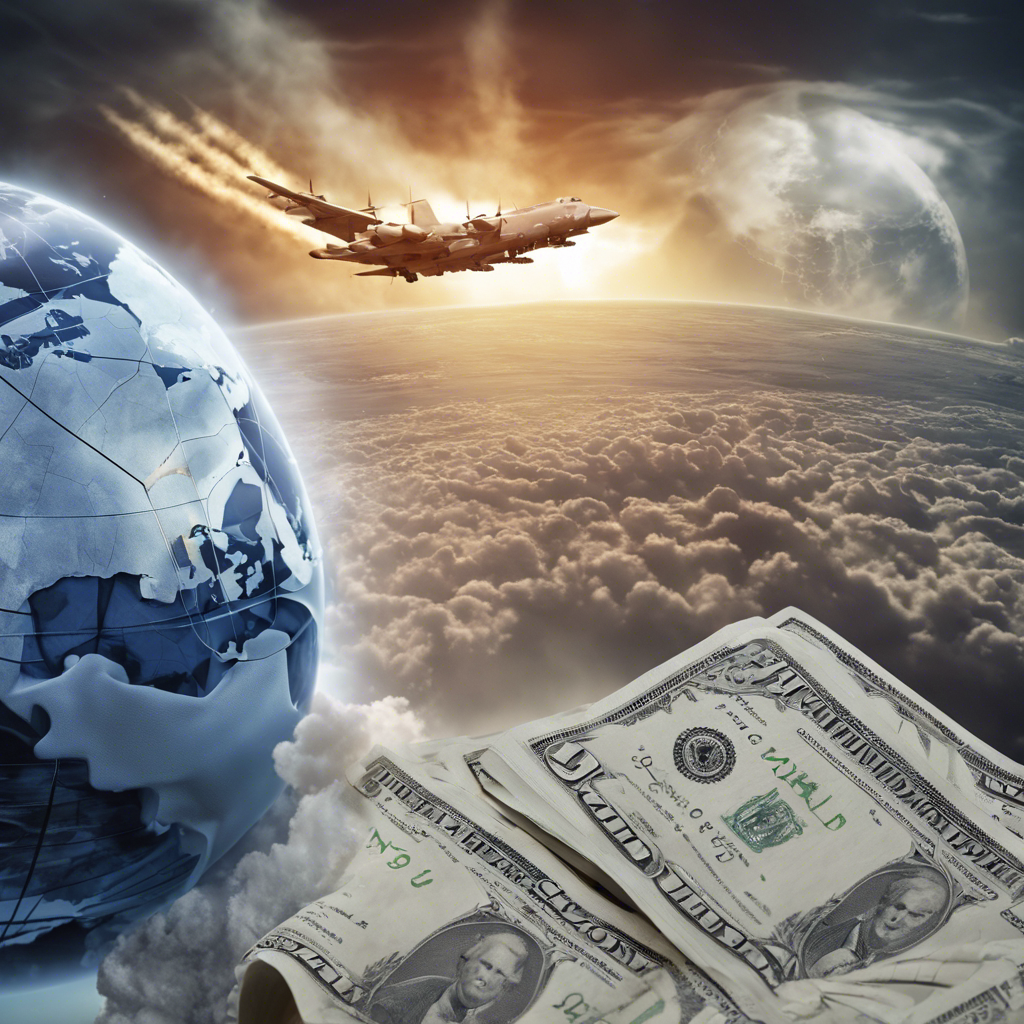The Looming Threat of a Second Cold War Threatens Global Economy, IMF Official Warns

Gita Gopinath, the IMF’s first deputy managing director, cautions that the escalating tensions between the US and China risk wiping out trillions of dollars in global output and could lead to a new cold war.
The world economy is teetering on the edge of a second cold war, warns Gita Gopinath, the first deputy managing director of the International Monetary Fund (IMF). Gopinath cautions that the increasing fragmentation of the global economy into regional power blocs centered around the US and China could result in the annihilation of the progress made since the collapse of the Soviet Union. With tensions mounting between the world’s most powerful nations, Gopinath urges governments to step back from the brink and work together on shared economic priorities. This article explores the potential consequences of a second cold war and the measures that need to be taken to prevent it.
Rising Geoeconomic Fragmentation
Since Russia’s invasion of Ukraine in February 2022, tensions between the US and European nations in the west and China and Russia in the east have escalated. Gopinath warns that fault lines are emerging, and if geoeconomic fragmentation deepens, the world could find itself in a new cold war. The slowdown in international trade since the Ukraine crisis is evidence of the growing divide between the two power blocs.
The Economic Impact of a Collapse in Trade
Gopinath highlights the potential damage that a collapse in trade between the US-centered bloc and the China-centered bloc could cause. If trade were to be eliminated entirely, the world economy could expect to see losses worth about 2.5% of GDP, equivalent to $2.5tn. However, depending on economies’ ability to adjust to the new divisions in world trade, losses could reach as much as 7% of world GDP. The fragmentation of foreign direct investment into two blocs could also result in long-term global losses of about 2% of GDP.
The Shift in Supply Chains and Protectionist Policies
In recent years, there has been a breakdown in relations between powerful economies, leading to a rise in protectionist policymaking. Companies have responded by “de-risking” their supply chains, reducing their reliance on lengthy global supply chains. The disruption caused by the Covid pandemic has accelerated this process, with companies increasingly sourcing materials from domestic suppliers or politically aligned nations. Governments are also investing in domestic economic growth and green industries.
Potential Benefits for Non-Aligned Countries
Gopinath acknowledges that politically non-aligned countries can benefit from acting as “connecters” between the two rival economic powers. For example, large electronics manufacturers are relocating production from China to Vietnam due to US tariffs on Chinese goods. However, Vietnam sources most of its inputs from China. Latin American countries, such as South American commodity exporters and Mexico, could also benefit. Mexico has surpassed China as the largest exporter of goods to the US this year, with Chinese firms targeting the US market by opening plants in Mexico.
The Risks for Non-Aligned Countries
While there are potential benefits for non-aligned countries, Gopinath warns that they could also lose out if the breakdown in international trade worsens. In an extreme scenario, even those who benefit from mild fragmentation could be left with a larger slice of a smaller pie. Ultimately, everyone could lose if the world economy becomes more fragmented.
Conclusion:
The world economy stands at a turning point, with tensions between the US and China threatening to plunge it into a second cold war. Gita Gopinath, the IMF’s first deputy managing director, warns of the potential annihilation of the gains made through open trade if the world descends into a new cold war. It is crucial for governments to step back from the brink and prioritize collaboration on shared economic priorities. Failure to do so could reverse decades of progress, peace, integration, and poverty reduction. The potential consequences of a second cold war are vast, and it is imperative that global leaders work together to prevent it.

